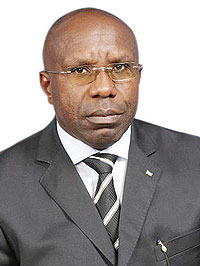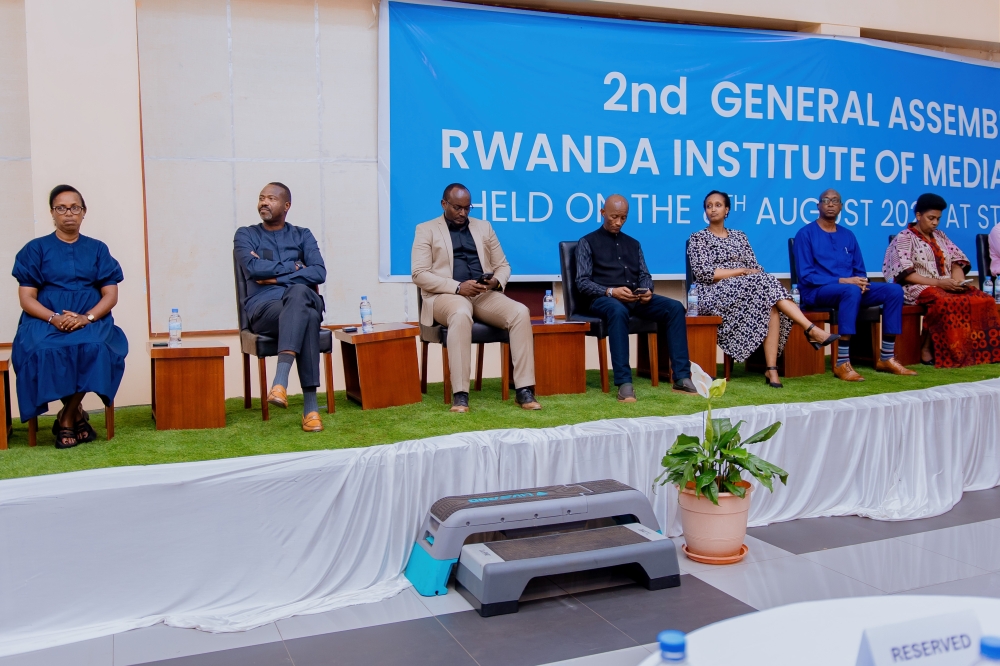There is a Kinyarwanda saying “inshuti nyanshuti uyibonera mu byago”. Its English equivalent is a friend in need is a friend indeed. Rwanda, since 1950’s started to experience various conflicts - sometimes deadly - mainly due to colonialism that politicised the long known Hutu, Twa and Tutsi social groups and changed them into conflictual groups; before Rwandans were living in harmony.


There is a Kinyarwanda saying "inshuti nyanshuti uyibonera mu byago”. Its English equivalent is a friend in need is a friend indeed. Rwanda, since 1950’s started to experience various conflicts - sometimes deadly - mainly due to colonialism that politicised the long known Hutu, Twa and Tutsi social groups and changed them into conflictual groups; before Rwandans were living in harmony. The climax of this divide and conquer rule was the 1994 Genocide against Tutsi, committed in the name of Hutu and aimed at exterminating all Tutsi. The 1994 Genocide against Tutsi was a result of poor leadership of authorities of the First and Second Republic who, instead of serving the interests of the public, catered for their own. These leaders were helped by some regional and Western governments, which betrayed Rwanda by refusing to intervene and stop the Genocide. Luckily enough, under the leadership of the Rwanda Patriotic Front (RPF) and its Chairman, Paul Kagame, the Genocide was brought to an end and a considerable number of Rwandans survived. The outcome of the Genocide was the killing of more than one million Tutsi in three months, more than 300,000 orphans, widows and widowers (7.3% of them being causalities of that Genocide), 85,000 child – headed families, 20% of families headed by widows. Vulnerable survivors of Genocide who need daily assistance are more than 164,000. Yet, before the Genocide, these people were happy and able to cater for themselves without seeking assistance from anybody. Even if the Government today, through its annual budget, provided assistance to vulnerable survivors, no one can claim that they would get over their loss or forget their beloved ones, who perished in the Genocide. More than 15,000 genocide survivors who permanently live with trauma and the larger number of Genocide survivors who suffer trauma attacks during the commemoration activities organised each year in April to remember the 1994 Genocide against Tutsi suffice to understand the magnitude of the consequences of the Genocide.The victims are buried in more than 400 Genocide memorial sites, including in neighbouring countries where their bodies surfaced after being dumped in rivers such as Nyabarongo, Akanyaru and Akagera. There are also those whose bodies have never been found – their families are searching and the killers have declined to disclose where they put the bodies.Shockingly, most of their killers are now scot-free in the Eastern part of the Democratic Republic of the Congo that shared a border with Rwanda. There are also others in certain African as well as Western countries. In all those parts of the world the Genocidaires continue to get support and mentorship from different people. Ironically, they (killers) are even getting support from people whom we believed were partners in the fight against the genocide ideology or who are neighbours with whom we have a lot in common. There are two Rwandan proverbs that state that the one with bad language dies with it and that in every family there is black sheep (Inda ibyara Mweru na Muhima). Indeed, there are some neighbouring countries that used to have good leaders who were champions of African unity, who loved the truth and only truth, who contributed a lot in the fight for independence of African countries to the extent that they were called Fathers of those countries. All we know is that those countries were true friends to Rwanda and its people. Unfortunately, those Panafrican leaders were not succeeded by people who shared their exemplary leadership qualities.Whoever requests Rwanda to negotiate with FDLR, knowingly or out of ignorance, their malicious and provocative dream must be condemned in the strongest terms. Remember the saying that you must not do to others what you would not like them to do to you, particularly when they are neighbours. In any case, whatever has happened; Rwandans should not be distracted and discouraged. We have many true friends and their number is always increasing. Rwandans have no single right to take a step backward to their achieved tremendous development. What Rwandans are achieving is not by accident or by chance. They fought for it. Rwandans and their leaders have one vision: self-reliance that must continue forever and in stability. We know that Rwandans’ success arouses some people’s jealousy but the truth remains the truth and will always triumph over evil.The writer is the Prime minister of Rwanda.




